Article from The Classical Difference
Read more here
TALE OF TWO SCHOOLS
In February of 2013, in a high school class at one of the nation’s largest secular classical school chains, a discussion was held. It was very impressive, but an unusual turn of events shed light on a problem.
Earlier that week, in a class at a classical Christian school, juniors were discussing a passage midway through Dostoyevsky’s Brothers Karamazov. The Christian discussion was rich with the teacher guiding students through some deep stuff: the burden free will creates, the purpose of suffering in God’s creation, and a beautiful depiction of love as the ultimate conqueror. She framed the work in the theological system of the author, a deep and reflective Christianity.
THE DESTINATION & THE PATH
The students engaged in a spirited discussion, seeking the truth—free to express their thoughts and opinions, but not limited by them. In this classroom, the Logos was the living person of Jesus Christ.
Back at the secular classical school, students gathered around a table to discuss, by some turn of fate, the same book, near the same passage! What followed said volumes. The teacher began the discussion and then stepped back. Mormon and Roman Catholic views, along with a variety of indiscernible positions, were suggested by students.
There the discussion remained—an exploration rather than a destination. The teacher could not step in and guide spiritually because he was forbidden to advocate for “religious” ideas. The discussion could only change topics, not delve deeper. Christian theology was out. And, without theology, philosophy is neutered. All that was left for the students in the class was to pool their youthful “wisdom” and wander through questions about ultimate meaning with their 17- and 18-year-old peers.
It seems that non-Christian classical schools know they’re about something big—something eternal. Many teachers and administrators at these schools would prefer to openly discuss God as the source of morality and truth, but the length of their chain keeps them from the true power of classical education. The danger of these schools, cut off from the truth system of Christ, is that they will create a destination (called paideia) with no path to it. They cannot view the world rightly because the path (the Logos) is unknowable. This can cause a devastating wobble in the lives of kids. To understand why, we must first understand the centerpiece of classical education: the Logos.
BREACHING THE CORE
Without Christ, classical education’s core questions—“what is truth?” and “why am I here?” and “how shall I live?”—cannot be answered truthfully. Jesus Christ is not a part that can be safely extracted from classical education and taught at home. He’s integral to the nature of the thing. If He is removed, we run the risk of creating the ugliness of a person without a face, a soul without love, a truth without the author of truth.
In this context, non-Christian classical schools, like old-line private schools or newer charter schools, have an even bigger problem. They buy wholesale into education as the “cultivation of virtue.” But, now they’ve created a taller ladder and they have no wall to place it against—a destination without a path.
They might argue this is the goal, and that parents can fill this hole at home and at church. But can they? Again, this assumes faith is separate from the real world—faith is a personal thing to be done at home while math, science, literature, history, philosophy, theology, logic, rhetoric (and even daily life) are subjects we can “do” without reference to the author of Truth.
As the humanist Charles Potter said, “What can theistic Sunday-schools, meeting for an hour once a week and teaching only a fraction of the children, do to stem the tide of a five-day program of humanistic teaching?”
For that matter, if classical Christian schools forget the true purpose of edu cation and become college preparatory schools or simply “safe-havens,” we will join other schools in their dilemma.
Jonathan Edwards observed, “Truth is the agreement of our ideas with the ideas of God.” G.K. Chesterton said that “Education is not a subject, and does not deal in subjects. It is instead a transfer of a way of life.” What way of life do you want to transfer to your children? What Truth do you want them to know?
Read more here

